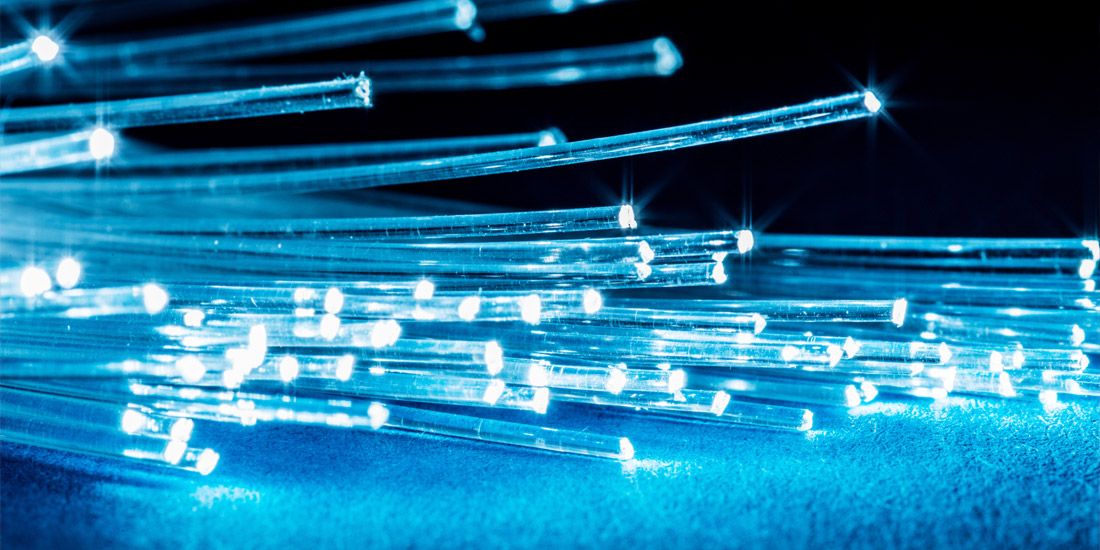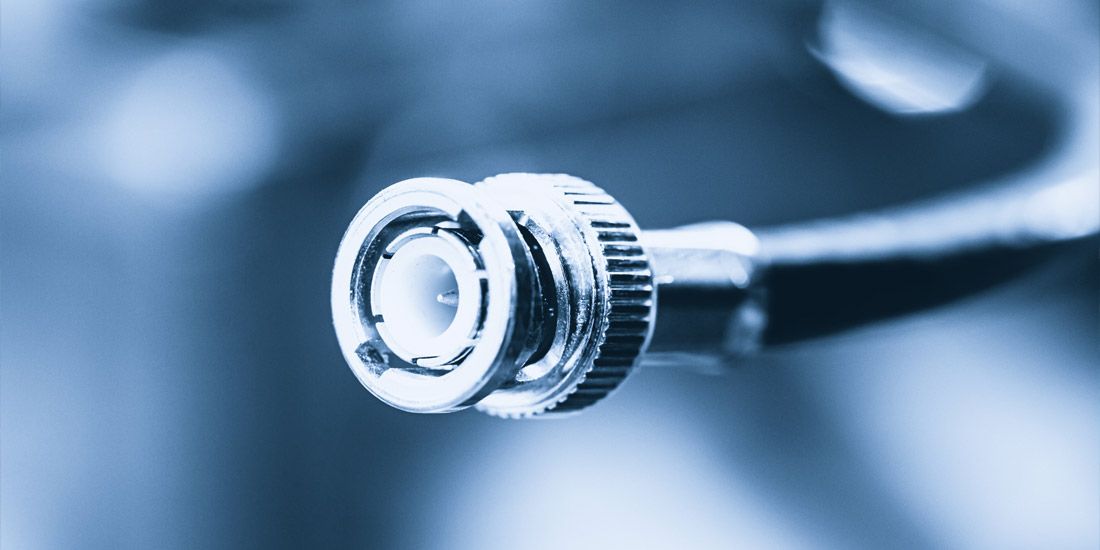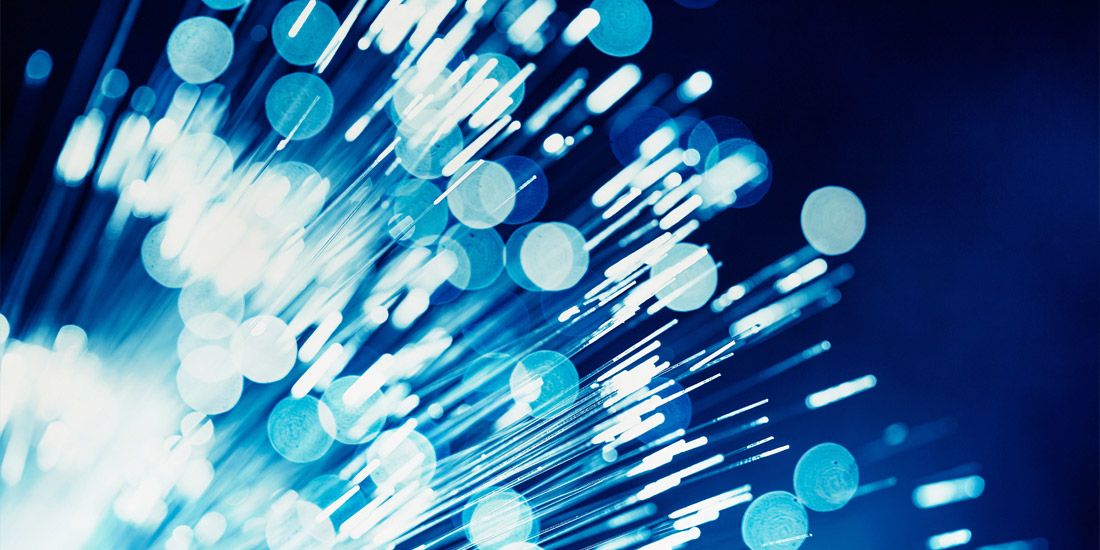Cable vs fibre: What’s the difference?
18th October, 2022 | Home / Blog / Fibre broadband / Cable vs fibre: What’s the difference?Reading time: 5 minutes

Knowing your cable from your fibre broadband is key to making the most of your internet connection. There are lots of advantages of fibre optic cable. With speeds, service and superior technology, there’s plenty to compare between the two.
So, if you’re wondering what’s the difference between broadband and cable you’ve come to the right place…
What’s the difference between cable broadband and fibre optic broadband?
The big difference between a cable internet connection and fibre broadband is how it works. Let’s break it down:
What is cable broadband?
Cable broadband providers set up your internet service using coaxial cable.
What’s coaxial cable, you might ask? It’s a type of electrical cable used to set up satellite internet connections and cable internet. Inside it, it’s made up of metal parts to conduct electrical signals to transmit data.
That’s how coaxial cables work to get cable internet.

How fibre to the home technology works
However, fibre broadband, or FTTP, works differently. It uses fibre optic cables that are made from glass. This allows data transmission at incredibly fast speeds – almost as quick as a flash of light. The fibre optic cable sends the signal from your telephone exchange to your home.
So the difference is in how the data signals get sent. Nifty, huh? You can learn more in our guide: What is fibre broadband?

Now, let’s delve deeper into the differences between these two internet connections. Going head-to-head here’s cable vs fibre:
Cable vs fibre broadband: Which is more reliable?
Fibre is far more reliable than a cable internet connection for a number of reasons. Here are just 3 reasons on why fibre is better than cable internet:
1. Cable internet is so much more susceptible to severe weather.
If there is a storm or strong winds, it’s much more likely that a cable connection would break first, or you’d at least lose the signal. But with fibre, you get way less interference in your internet connectivity thanks to the improved technology.
2. A cable internet connection can’t send data signals as far as fibre
Coaxial cables can only send data signals up to approximately 100 metres, but fibre broadband can carry a signal and transmit data for over 20 miles.
3. Cable can be more available, but it’s less reliable at peak times
Cable internet is thought to be more available, but this does depend on availability near you. Due to the restrictions on how far it can travel, it means that if you live out of town, it probably isn’t a good option for you.
Also, if more people are using cable broadband it can affect your speeds, which means it can be unreliable at peak times.
Let’s say there are a few of you at home wanting to use the internet for different reasons, such as online gaming, video conferencing, and online shopping to name a few. With cable internet, this would prove more difficult. Plus, cable internet might not be reliable if lots of other households near you are using the same connection.
So, the verdict is that fibre broadband is more reliable than cable internet. It’s a win for fibre!
Cable vs fibre: Which costs more?
Oftentimes, cable is more expensive than the latest fibre broadband, so it may work out cheaper for you to upgrade too! But ultimately, it can depend on the type of service provider and speeds you choose. You can get cable broadband from one of the cable internet providers in the UK.
We offer multiple fibre broadband packages ranging from £25 to £55 per month, so you can choose how fast you want to go, and never pay a penny more than you sign up for too, thanks to our fixed-price promise.
If you want higher upload speeds and download speeds, our Fibre 900 and Fibre 600 packages could be your connection made in heaven, compared to our Fibre 150 and Fibre 300Mbps packages.
Seeing as we offer a range of speeds to suit all needs, it’s down to your needs. This table can help you work out which fibre package is right for you, and you can use the information on our what upload and download speeds you need blog to work it out.
| Fibre package | Monthly cost | Upload speed | Download speed |
|---|---|---|---|
| Fibre 150 | £25 | 50Mbps | 150Mbps |
| Fibre 300 | £35 | 75Mbps | 300Mbps |
| Fibre 600 | £45 | 100Mbps | 600Mbps |
| Fibre 900 | £55 | 200Mbps | 900Mbps |
Cable vs fibre: Which can I get?
You might be able to get cable broadband near you. You might even be on a cable contract at the moment. But fibre broadband is taking over and expanding throughout the UK.
At Airband, we’re experts in rural broadband, offering both wireless and fibre broadband solutions. Our network covers thousands of premises across the UK, in even the most rural areas of the country. Take a look at our coverage areas:
You can check out our broadband packages or enter your postcode in our broadband coverage checker to see if you’re in range.
We offer multiple fibre broadband options so you can choose the right one for you:
Cable vs fibre: Which is faster?
Everyone wants fast download speeds and upload speeds because it means you can go about using the broadband without any disruption.
It depends on which internet provider you choose and whereabouts you’re based to know which internet speed you might get. For example, if you choose a cable or ADSL broadband service, your max speeds are likely not going to be as fast as if you choose superfast fibre broadband.
Cable speeds
On a cable internet service, download speeds tend to start at 25Mbps, but you can get faster speeds than this. It depends on which package you get and where you’re based. But coaxial cables can tend to give you lower upload speeds.
Upload speeds on a coaxial cable can start at 5Mbps and reach up to 50Mbps. But again, cable internet connections might struggle to stay at those speeds if there is more than one person locally using the connection.
Fibre speeds
Internet users who are on an FTTP connection (fibre-to-the-premises) can expect much faster speeds than through copper cable or wire.
Download speeds on a fibre broadband connection can reach up to 900Mbps, and upload speeds can be as fast as 200Mbps. Far greater than cable!
You can get these with our fibre 900 package for £55 per month, which includes free installation, and for the best coverage, you’ll also get 2 Linksys routers for free too. (RRP is £500!)
So, typically, the upload speeds and the download speeds are both faster with fibre broadband. It’s another win from us!
Types of broadband
Are you struggling to get your head around the differences between all the various types of internet connections that you see online?
Hopefully, you’ll find these blogs helpful to understand the ins and outs of each:
- What’s the difference between FTTC and FFTP?
- What’s the difference between ADSL and fibre?
- What’s the difference between broadband and fibre?
You might also like:
- 10 Problems switching broadband providers
- How to stream movies from Mac to TV
- Best broadband for working from home
Related Articles
Check availability:


